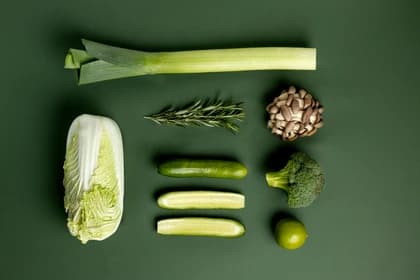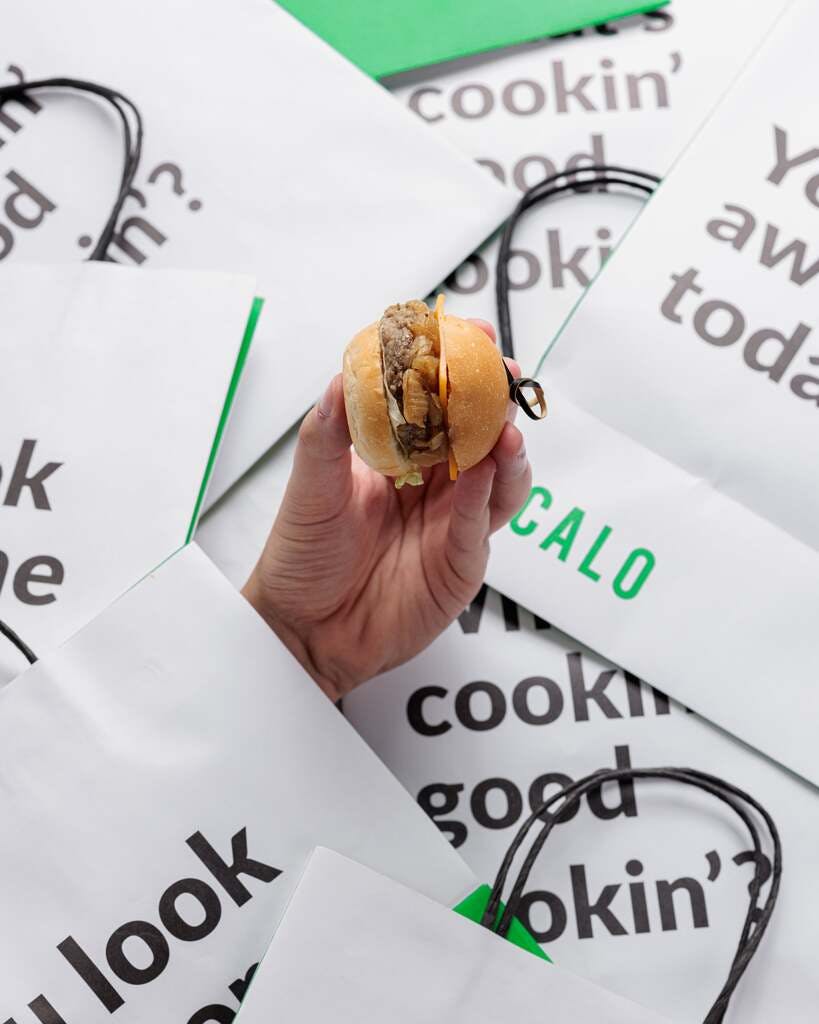Back to blog
What Is the Best Acne Treatment for Your Skin?
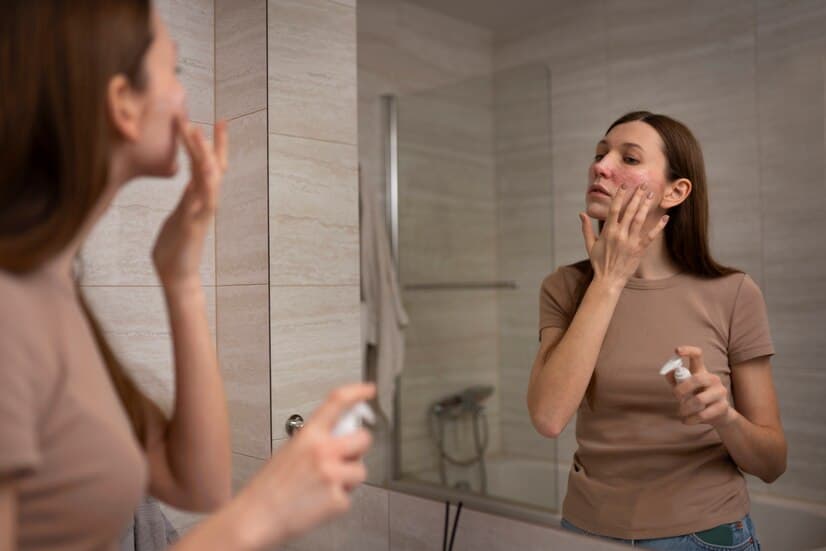
Finding the Best Acne Treatment
Types of Acne
Symptoms of Acne
Treatments
Roaccutane
Healthy Food Delivery
Types of Acne
Symptoms of Acne
Treatments
Roaccutane
Healthy Food Delivery
Facial pimples are common and can be caused by internal factors like hormonal imbalances or external ones such as pollution. Although they often appear on the face due to high exposure, they can also affect the neck, chest, or shoulders.
Before searching for the best acne treatment from pharmacies, you must understand the causes; acne forms when bacteria, oil, and dead skin clog the pores. Without proper cleansing, these impurities can worsen into severe acne or signal deeper health issues. Can we permanently treat them and reduce their effects? Let's find out.
Finding the Best Acne Treatment
Acne can take a toll on your self-confidence, sometimes even leading to feelings of distress or depression. It typically develops when hair follicles and pores become clogged, often appearing as blackheads or whiteheads (comedones), which are usually harmless. However, if your acne becomes very painful or hard to treat, it might be a sign of a deeper issue. The good news is that with the right care and treatment, you can effectively manage acne and achieve a clearer, healthier complexion.
*You can also read about the benefits of Glutathione.
Types of Acne
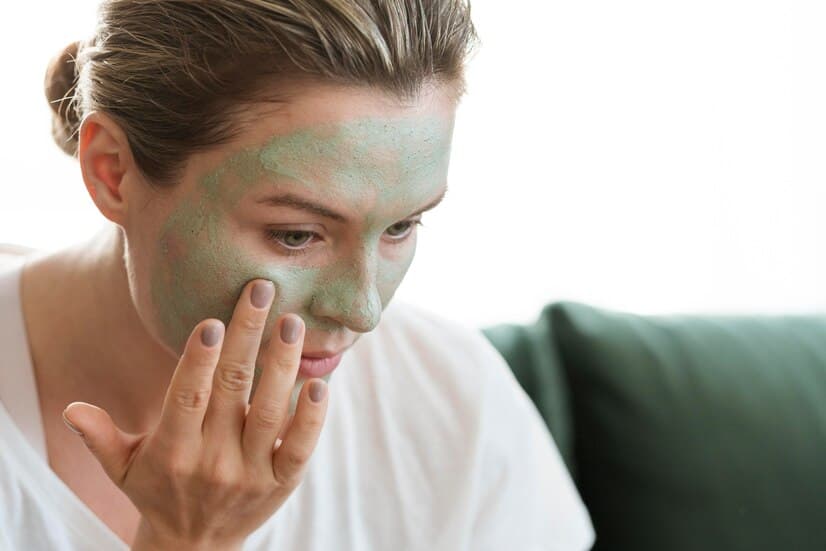
Acne comes in many forms, and knowing the differences can really help when you're trying to treat it. You might be familiar with comedones, they are the same as whiteheads and blackheads, which are especially common on the nose and forehead. But there are other types too:
- Papules: these are small, red bumps caused by inflamed hair follicles.
- Pimples: often seen as red spots with a bit of pus around the edges.
- Nodules: these are larger, hard lumps that form deeper under the skin and can be quite painful.
- Cysts: these painful, pus-filled bumps are the most severe type and can sometimes lead to scars.
Symptoms of Acne
You may think that the appearance of pimples is a sufficient sign to call it acne, but they are completely different, there are some symptoms that indicate that the pimples appear are acne that need treatment. It is not related to focusing on treating facial pimples only, but it can spread to other parts of the body. It may take days to months to disappear depending on the cause and condition. Here are some of these symptoms:
- Skin Discoloration: Includes dark spots and redness
- Scarring: Can lead to uneven skin texture
- Swelling and Inflammation: Noticeable puffiness and irritation
- Pain: Occurs when touched, and sometimes even without direct contact
*You can read about avocado benefits.
What Causes Acne
Before finding the best acne treatment for you, you must understand the causes. Pores are small openings that house hair follicles and oil glands. They release oil onto the skin, and when mixed with bacteria and dead skin, pimples can form. Even with proper care, breakouts can still occur. So, what else might be causing them? Here are a few possibilities:
Hormonal Imbalance
Hormones are one of the main causes of acne, and their nature varies according to the condition and their treatment may require medical advice. Here are the causes of hormonal fluctuations in the body:
- Reaching puberty: when you reach puberty, androgen levels (the hormone that gives male characteristics) are stimulated, and when it increases, it may cause acne.
- Menstrual cycle: the menstrual cycle sometimes causes hormonal imbalance that affects the skin and its clarity.
- Pregnancy and menopause: changing hormone levels during pregnancy, breastfeeding, and even menopause cause different types of pimples to appear.
- Medical conditions: conditions such as polycystic ovary syndrome (PCOS) can lead to increased acne.
Increased Sebum Production
Sebum is a natural oil produced by your skin to keep it moisturized, but too much of it can clog pores and lead to acne. Diets high in fast food, sugary snacks, and processed ingredients may contribute to this overproduction. On the other hand, eating a balanced diet rich in natural, whole foods can help improve your skin's condition.
Skin Care and Makeup Products
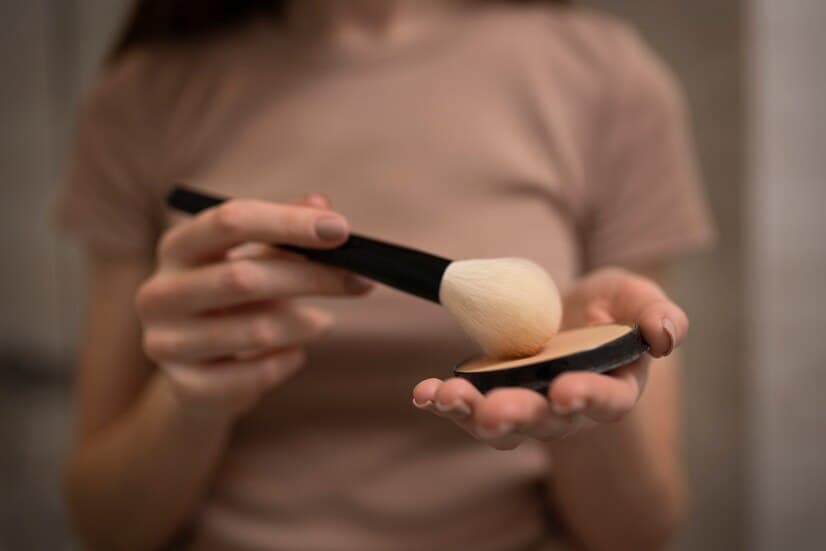
Using poor-quality skincare and makeup products can contribute to blackheads and acne. Medicated cleansers and face wash help deeply clean your skin, and it's important to remove makeup before bed. Additionally, avoid touching your face, especially while eating, since the bacteria on your fingers can lead to breakouts.
Bacterial Skin Infections
There are types of bacteria such as Cutibacterium acnes that can be trapped inside the pores of the face until they multiply, and if neglected, they turn into painful pimples on the face. Products containing benzoyl peroxide can be used as some individuals consider it as the best acne medication for the skin, and it is important to make sure that products containing benzoyl peroxide are safe, medical and licensed.
Diet and Food Allergies
Not drinking enough water, eating unhealthy foods and eating sugar excessively can exacerbate acne. These foods can cause digestive disorders, making this problem more internal than skin-related. You should also pay attention to the foods you eat according to what your body accepts, as dairy products (especially dried milk) cause pimples for many people, in addition to other foods that may be natural such as vegetables and fruits.
Psychological State
Your mental state often shows on your skin. High stress levels can increase cortisol, the stress hormone, which may lead to cravings for sugary, unhealthy foods. This cycle of stress and poor eating habits can contribute to skin issues.
Choosing the Best Acne Treatment
Adopting a dedicated skincare routine can lead to lasting improvements, whether you're looking for an effective acne scar cream or a reliable cleanser.Each of these options can play a part in a comprehensive approach to clear, healthy skin. Always consult a doctor to provide you with treatments for your skin type. In the meantime, you might consider these treatment options and practices:
Benzoyl Peroxide
This ingredient is often found in cleansers and spot treatments. It helps dry out acne and reduce its appearance.
This ingredient is often found in cleansers and spot treatments. It helps dry out acne and reduce its appearance.
Salicylic Acid
Salicylic acid gently exfoliates the skin, helping to clear away dead skin cells and prevent clogged pores that can lead to breakouts.
Salicylic acid gently exfoliates the skin, helping to clear away dead skin cells and prevent clogged pores that can lead to breakouts.
Professional Treatments
For more severe cases, a specialist might prescribe treatments such as erythromycin, clindamycin, or retinoids to address inflammation and bacterial growth.
For more severe cases, a specialist might prescribe treatments such as erythromycin, clindamycin, or retinoids to address inflammation and bacterial growth.
Topical Options
Treatments like photodynamic therapy (PDT) can target abnormal cells within pores, offering another avenue for managing acne.
Treatments like photodynamic therapy (PDT) can target abnormal cells within pores, offering another avenue for managing acne.
Chemical Peeling
Chemical peels deeply cleanse the skin by removing dead cells and unclogging pores, which can help smooth the skin’s texture.
Chemical peels deeply cleanse the skin by removing dead cells and unclogging pores, which can help smooth the skin’s texture.
Cortisone Injections
For significant inflammation, cortisone injections may be used to reduce swelling and provide relief.
For significant inflammation, cortisone injections may be used to reduce swelling and provide relief.
Home Remedies
At-home solutions, such as masks with tea tree oil, a honey and cinnamon blend, or aloe vera gel, can be beneficial for soothing and treating acne.
At-home solutions, such as masks with tea tree oil, a honey and cinnamon blend, or aloe vera gel, can be beneficial for soothing and treating acne.
Avoiding Bad Skin Habits
Resist the urge to pick or squeeze pimples. Handling your skin gently helps prevent scarring and further irritation.
Resist the urge to pick or squeeze pimples. Handling your skin gently helps prevent scarring and further irritation.
Hygiene Practices
Regularly changing pillowcases and towels can reduce bacterial buildup and support cleaner skin.
Regularly changing pillowcases and towels can reduce bacterial buildup and support cleaner skin.
Prescription Medications and Hormonal Treatments
Depending on your needs, your doctor might recommend antibiotics or hormonal treatments like anti-androgens to manage acne.
Depending on your needs, your doctor might recommend antibiotics or hormonal treatments like anti-androgens to manage acne.
Isotretinoin
This powerful form of vitamin A is sometimes prescribed for severe cystic acne to achieve significant improvement.
This powerful form of vitamin A is sometimes prescribed for severe cystic acne to achieve significant improvement.
Microneedling
Microneedling can encourage collagen production, which may help smooth out acne scars over time.
Microneedling can encourage collagen production, which may help smooth out acne scars over time.
Healthy Diet
A balanced diet rich in vitamins and minerals can help maintain overall skin health and may reduce excess oil production.
A balanced diet rich in vitamins and minerals can help maintain overall skin health and may reduce excess oil production.
Using Serums After Cleansing Your Skin
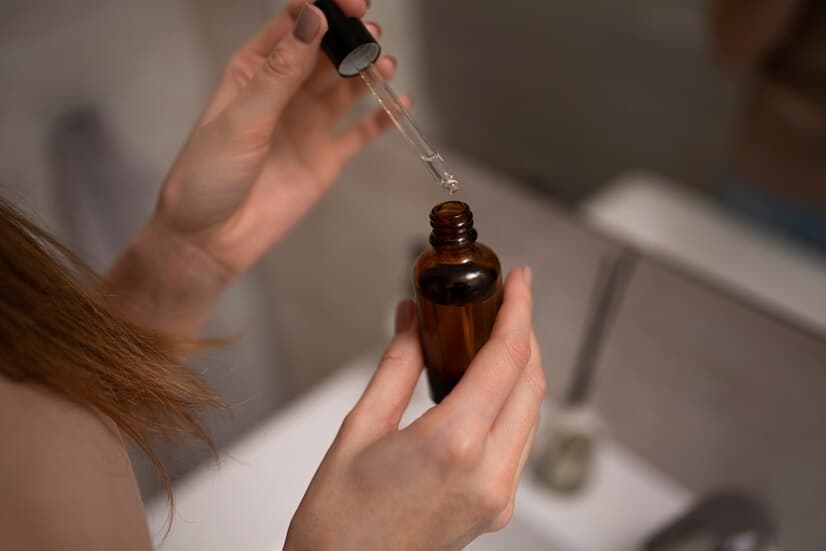
Medical serums can nourish the skin and help maintain its radiance while sometimes reducing the appearance of pores.
Roaccutane
Vitamin A plays a role in treating acne, with Roaccutane being one of the most well-known and effective treatments. It is often prescribed for stubborn cases that don’t respond to other treatments, as it works by reducing oil production in the pores and addressing acne at its source. Roaccutane is also used for severe nodular and cystic acne and can help improve the appearance of deep scars.
Roaccutane works by preventing clogged pores, reducing dead skin buildup, and lowering bacteria levels that contribute to breakouts. By targeting acne-causing bacteria (Cutibacterium acnes) that thrive on skin oils, it helps calm active pimples and prevents new ones from forming. However, Roaccutane is a powerful medication and should only be taken under medical supervision, and here’s who can consider it:
- Individuals who suffer from severe and persistent acne.
- Those who have tried other treatments such as antibiotics and topical treatments and did not get any results.
Dosage and Duration
Accutane is prescribed by a specialist doctor after performing the necessary tests, especially kidney and liver examinations. Treatment can last from 4 to 6 months depending on the condition, and 0.5 to 1 mg is taken after consulting a doctor. Accutane comes in capsules, and the duration of treatment and doses depend on age, weight, and health condition.
Roaccutane Side Effects
Some people believe that Accutane is the best acne treatment for facial pimples and their effects, but there are some annoying side effects that must be taken into consideration. Here are the most prominent symptoms:
- Dry lips and skin: one of the most prominent side effects of Accutane is dry skin, lips, and sometimes hair.
- Temporarily increased acne: pimples may increase during the first weeks of treatment.
- Sensitivity to sunlight: the skin becomes more sensitive to the sun.
- Nosebleeds: due to dry nasal passages.
- Joint and muscle pain: This occurs especially in physically active individuals.
- Mood swings: this condition does not occur to all individuals, but it can cause mood swings.
- Risks to pregnancy: roaccutane may cause birth defects, so you should consult a doctor and do the necessary tests.
- Risks to liver function: tests should be done regularly to monitor internal changes in the body, as it can affect cholesterol levels and liver enzymes.
- Problems with vision or hearing: these are rare side effects, but any changes that occur in the body when taking Roaccutane should be monitored.
Healthy Food Delivery
Healthy food is rich in vitamins and minerals that support the body's immunity and help keep the skin clear, hydrated, and glowing. That’s why the Calo app offers a subscription service for delicious, satisfying healthy meals tailored to your routine and dietary needs, saving you time and effort in meal preparation.
If you want to maintain healthy skin but love snacking, you can opt for nutritious and tasty snacks that benefit your health without compromise. Calo also offers healthy meal plans for children, with delivery available to your home, workplace, or any location you choose.
FAQ
What does having a lot of pimples on the face mean?
An increase in pimples can be linked to stress, an unhealthy diet, hormonal changes, or even genetics. Identifying the cause can help in finding the right solution.
An increase in pimples can be linked to stress, an unhealthy diet, hormonal changes, or even genetics. Identifying the cause can help in finding the right solution.
What do pimples in different areas of the face indicate?
- Forehead: often linked to digestive issues, excessive sugar intake, or stress.
- Nose: blackheads and whiteheads here may be caused by excess oil production due to unhealthy foods. In some cases, heart or blood pressure issues can also contribute.
- Cheeks: usually caused by bacteria from phone screens, pillowcases, or pollution. Respiratory issues may also be a factor.
- Chin & Around the Mouth: often related to digestive or colon issues, with spicy foods being a common trigger.
- Ears: pimples here are rare but may indicate kidney issues. A dermatologist consultation is recommended for persistent cases.
What is the difference between white and yellow pus in pimples?
- White pus: contains dead white blood cells and signals mild inflammation.
- Yellow pus: suggests a more severe infection and often appears in deeper, more painful pimples that may need medical attention.
Is it safe to pop pimples?
It's best to avoid popping pimples, as this can spread bacteria and cause more breakouts or even scarring. Instead, gently cleanse your face morning and night and use proper treatments to heal pimples safely.
It's best to avoid popping pimples, as this can spread bacteria and cause more breakouts or even scarring. Instead, gently cleanse your face morning and night and use proper treatments to heal pimples safely.
Choosing the best acne treatment is not difficult, but it requires commitment and constant skin care. You can read more topics such as the benefits of dark chocolate and the best healthy juice recipes for weight loss. And more health-related topics on the Calo blog.





